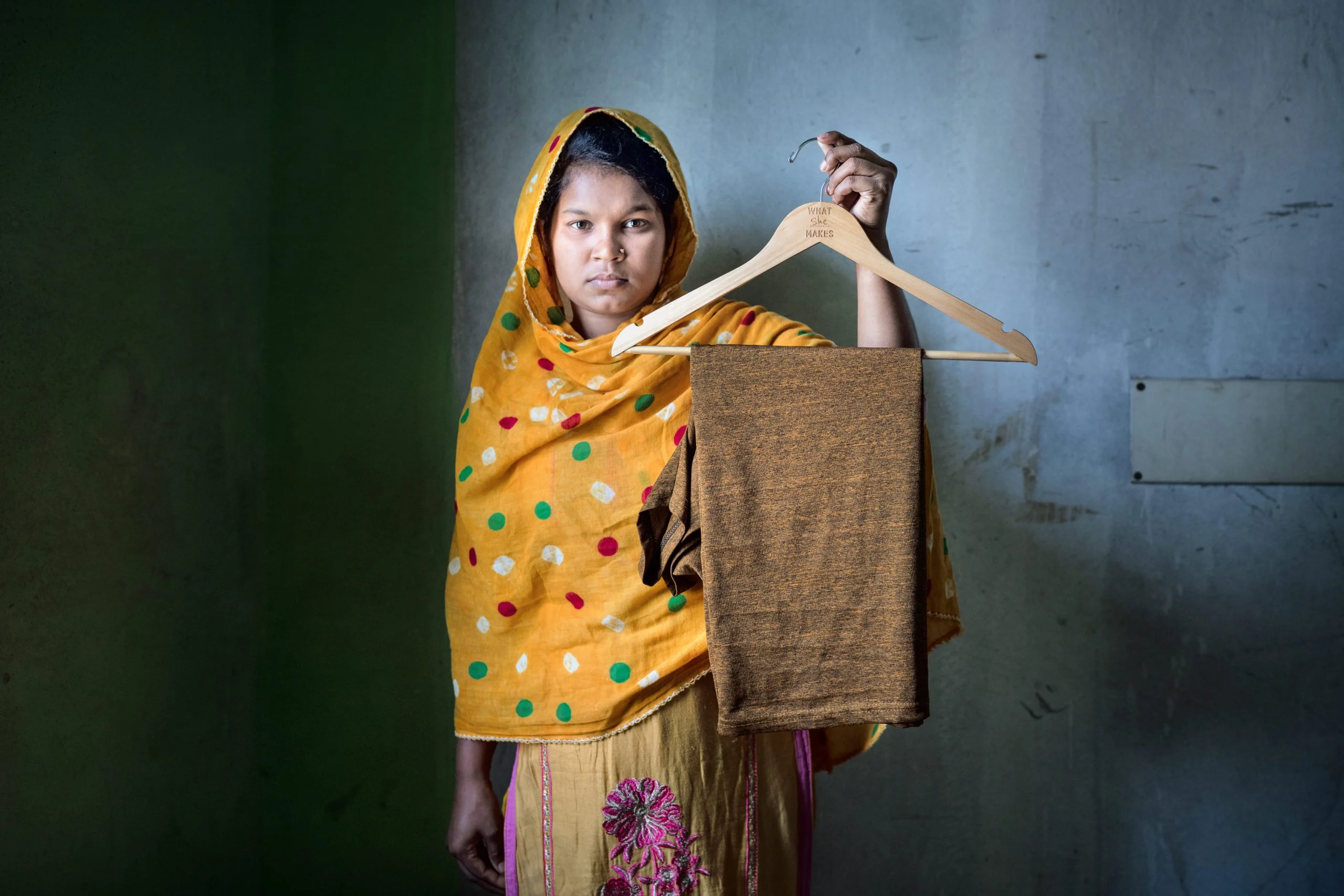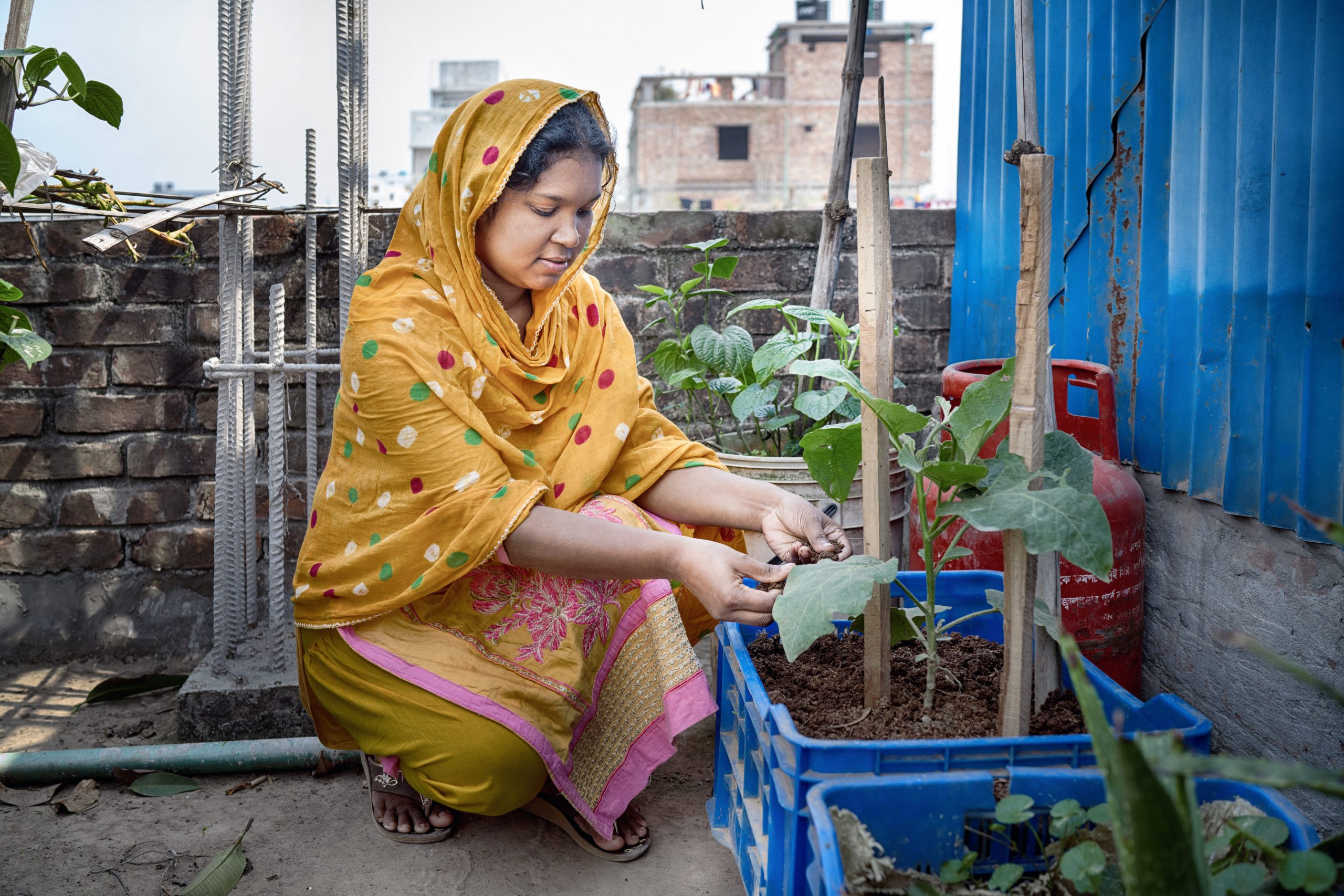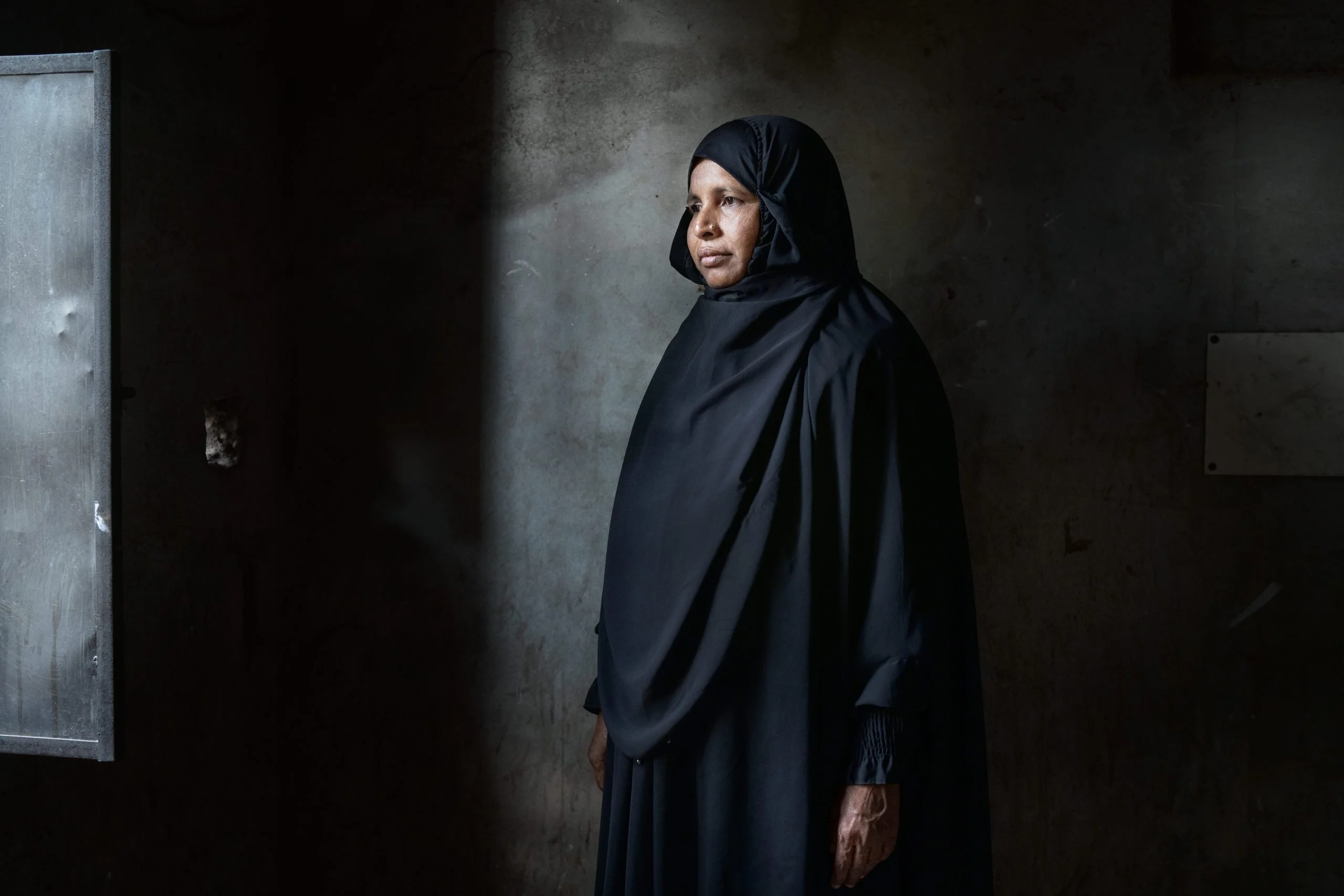“I have a target to make 1440 pieces in 8 hours, 180 pieces per hour. I make 1410 – 1420 pieces.”
Rumi works in a garment factory, matching the back and front parts of T-shirts.
Rumi completed her high school education, but was unable to pursue further studies due to a family crisis that forced her to move to the city and support her family at the age of 17.
Rumi’s two younger sisters now live with her and she bears the cost of their educational expenses. But on her low wage, she’s finding it impossible.
Although working conditions in many factories have improved since Rana Plaza, the women who make are clothes often still don’t have enough money to live on.
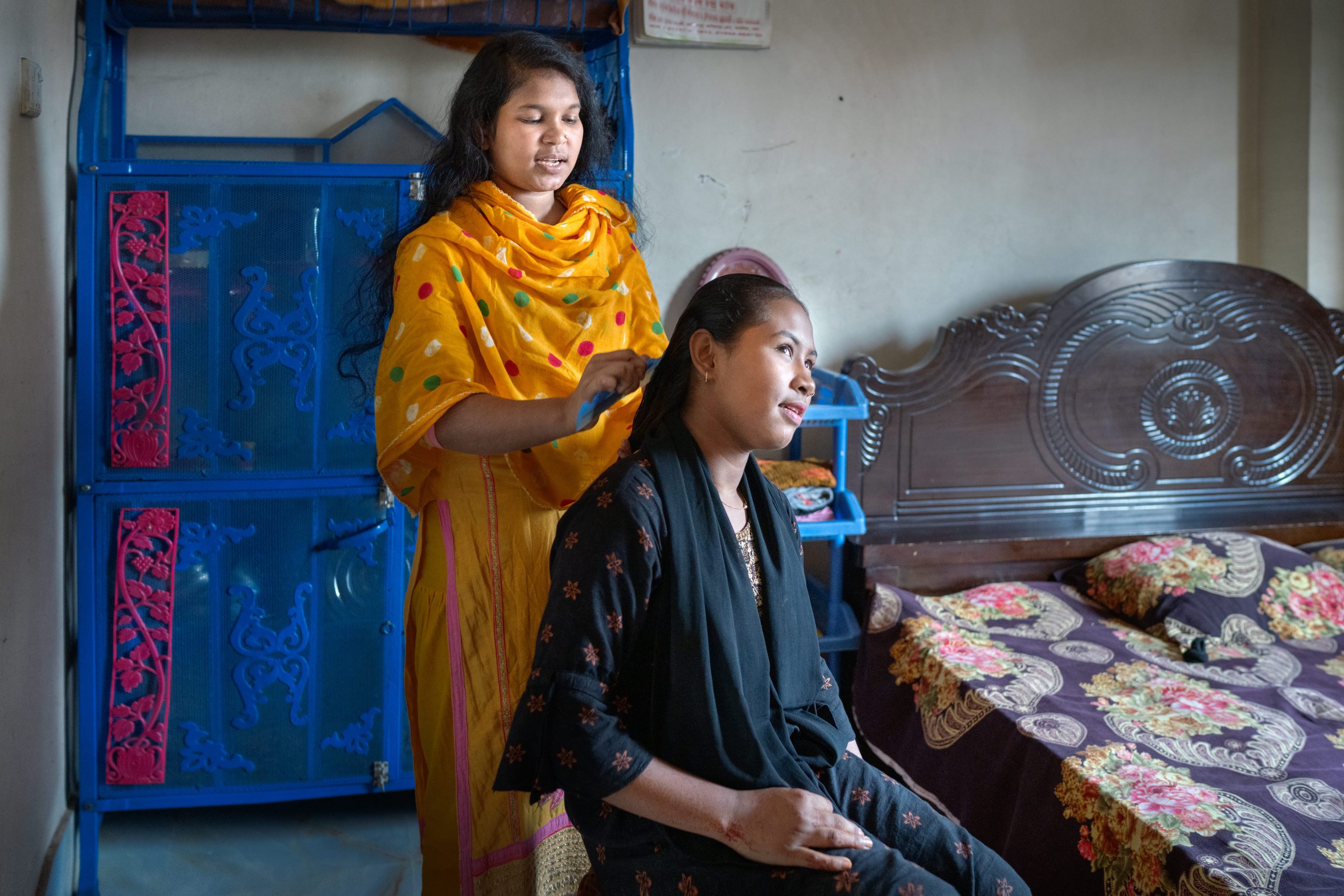
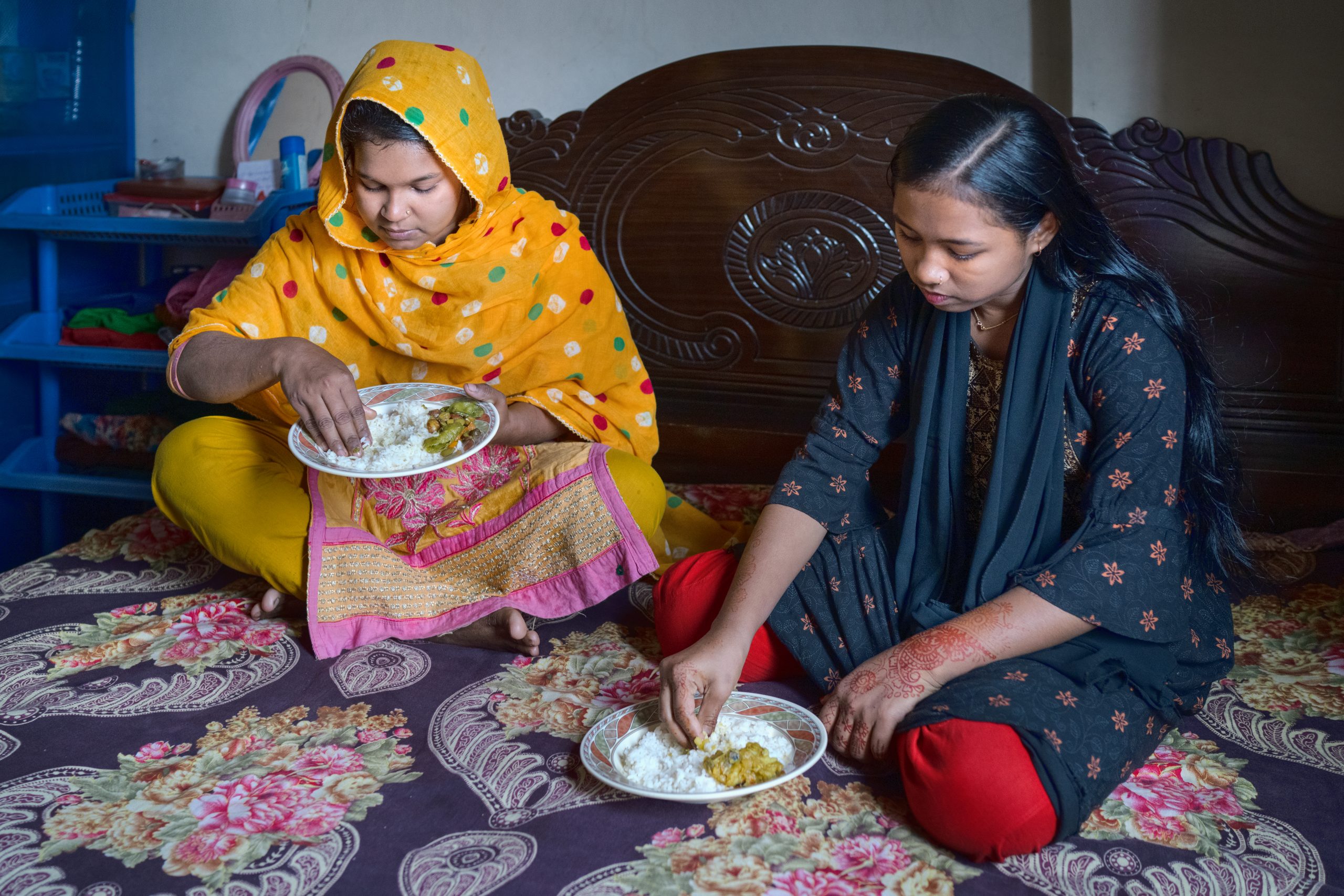
“Our salary is not enough, Prices of sugar, salt, and rice have increased, and the raw food market becomes expensive, and it is not sufficient for us.”
Poverty wages exacerbated by rising cost of living place many garment workers in difficult situations.
“My salary is not enough to run the family, and when I get sick, I cannot afford proper treatment. If our salaries increased it will be better.
I dream of getting a good job and getting married properly in a good environment. I want to live peacefully.”
“If I have children in the future, I wish to raise them properly as good human beings. I don’t want to work in garment factories anymore. I dream to live a peaceful life with my children in the future.”
Together, we’re tackling poverty in the fashion industry
Stand with the women who make our clothes. Add your name to demand big brands pay a living wage.
ACT NOW